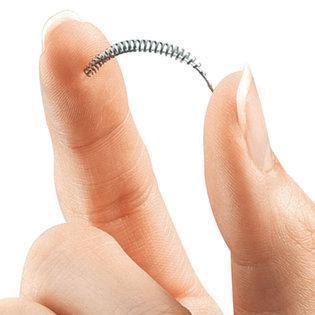Contraceptive suspended by EU that leaves women in 'suicidal' pain could still be in UK supply chain
'I felt like I was dying, like something was killing me from the inside,' says Victoria Dethier

Your support helps us to tell the story
From reproductive rights to climate change to Big Tech, The Independent is on the ground when the story is developing. Whether it's investigating the financials of Elon Musk's pro-Trump PAC or producing our latest documentary, 'The A Word', which shines a light on the American women fighting for reproductive rights, we know how important it is to parse out the facts from the messaging.
At such a critical moment in US history, we need reporters on the ground. Your donation allows us to keep sending journalists to speak to both sides of the story.
The Independent is trusted by Americans across the entire political spectrum. And unlike many other quality news outlets, we choose not to lock Americans out of our reporting and analysis with paywalls. We believe quality journalism should be available to everyone, paid for by those who can afford it.
Your support makes all the difference.Doctors have been urged to stop prescribing a potentially dangerous contraceptive implant after its commercial licence was suspended in the European Union.
The Essure implant, made by Bayer Healthcare Pharmaceuticals, has been subject an increasing number of complaints since 2013.
Many of its recipients have reported joint and abdominal pain, vaginal bleeding, chronic fever, cramping, fatigue and hair loss, with some reporting “suicidal” desperation.
Doctors have identified these as symptoms of a nickel allergy; part of the Essure implant is made from a nickel-titanium alloy.
The calls for British doctors to pause in their use of it has come from Bayer itself. The German pharmaceutical company insists the device is safe, but has asked British hospitals not to use it during this period.
The EU's suspension means that while sale of them is banned, already-sold implants in the supply chain could still be administered by doctors.
The implant works by embedding itself in the fallopian tube, prompting scar tissue to grow around it and block the tube. Other symptoms could be caused by implant penetrating the wall of the tube and moving elsewhere in the body.
Victoria Dethier, who received an Essure implant in 2012, told the Victoria Derbyshire programme: “There were moments where I couldn’t get out of bed I was in so much pain. I felt like I was dying, like something was killing me from the inside.”
Mother-of-three Laura Linkson added that the coil left her “stuck in bed unable to move without pain, at some points being suicidal.”
Removing the implant has proved complicated and some women have had to have their fallopian tubes and uteruses removed.
Irish regulators suspended the implants commercial licence earlier this month, meaning it can’t be sold anywhere in the EU until November.
This follows a ban in Brazil that lasted from February to July, wheres as the American Federal Drug Administration has stated it “continues to believe the benefits outweigh the risks,” despite several years of campaigning from well-known activist Erin Brockovich.
The Medicines and Healthcare Products Regulatory Agency (MHRA) has the power to ban dangerous devices in the UK, but a spokesman told The Telegraph: “There is currently no evidence to suggest any increased risk to patient safety.”
The organisation also refused to say how many reports of problems it had received, citing commercial confidentiality reasons.
Carl Heneghan, an epidemiologist at the Centre for Evidence-based Medicine at Oxford University, was critical of MHRA’s lack of action.
He said: “How much evidence to you need to say ‘let’s withdraw this from the market’?”
Join our commenting forum
Join thought-provoking conversations, follow other Independent readers and see their replies
Comments